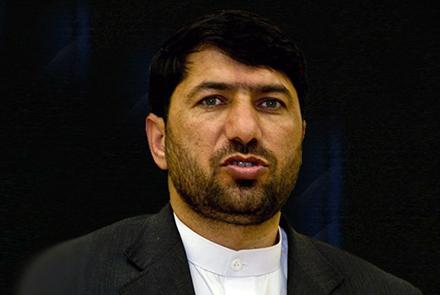Mohammad Akram Khpalwak, an advisor to the president and head secretary of High Peace Council, on Tuesday said in Kabul at a National Consultative Peace Conference with tribal and Jihadi elders and provincial council representatives, that the Taliban should approach Afghans to end the war instead of sending letters to the United States.
“The Taliban should have approached Afghans to end current violence in Afghanistan instead of sending letters to the US,” said Khpalwak.
Last week the Taliban called on the American people to put pressure on US President Donald Trump to change his war policy in Afghanistan and pursue peace.
The letter, which was addressed to “the American people”, says the US invaded Afghanistan for three goals: “Establishing security by eliminating the so-called terrorists inside Afghanistan, restoring law and order by establishing a legal government and eradicating narcotics”. However, the letter says the US and its allies have failed to achieve these goals.
The letter mentioned that the continuance of war and remaining of US forces in Afghanistan was not in favor of anyone and that this “threatens the stability of the world”.
“Your president and his military and political officials following his war policies still speak the language of war in Afghanistan,” the letter read.
The Taliban asked the American people that if they want peaceful dialogue with Afghans specifically and with the world generally, then they need to make their president (Donald Trump) and the “war-mongering congressmen and Pentagon officials understand this reality and compel them to adopt a rational policy towards Afghanistan”.
Tuesday’s conference, organized by the HPC, has brought together more than 800 influential Afghans from across 34 provinces.
HPC chairman Mohammad Karim Khalili also addressed the conference said that Afghans are pro-peace and support peace.
“We have been consulting with all the people of Afghanistan about peace and security, all the people in the country are pro-peace and support our voice for peace,” Khalili said.
He said Afghan people believe in peace and that a military approach is not the solution.
Khalili also pointed out that President Ashraf Ghani’s recent visit to the council was testimony to government’s commitment for peace.
“The presence of Ashraf Ghani the president of Islamic Republic of Afghanistan in such a critical situation at HPC and providing assurances for continuation of negotiations, is demonstrating the commitment of the government for peace,” Khalili added.
On February 3 Ghani addressed the general session of the High Peace Council meeting after a string of deadly attacks in Kabul and said the peace door for those involved in recent attacks in Afghanistan was no longer open and that government will hunt down the attackers no matter where they are hiding.
“The door of peace for those behind the tragedy (in Afghanistan) is closed,” he said.
“We will chase them (militants) anywhere they hide. Afghanistan will take revenge, but wisely.”
Speaking to delegates at Tuesday’s conference, Khalili said that some foreign circles want to sabotage peace efforts.
“Some foreign circles are seriously trying to sabotage peace efforts in the country and recent attacks are an indication (of this),” Khalili said.
Khalili called upon all delegates to carry messages of peace to their areas and communities and cooperate with the HPC council.
“We call upon all of you as influential figures from across the country to take peace messages to each nook and corner of the community,” Khalili added.
Meanwhile Khpalwak said that efforts are under way for peace in Afghanistan.
“Efforts are going on for peace in Afghanistan at national and international levels, Kabul Process (meeting) is a clear indication of such efforts,” said Khpalwak.
“We all are responsible for bringing about peace, it is the duty of each Afghan. We the tribes request you to devise a clear peace mechanism,” said Abdul Qayom Khan, a tribal elder from the south-east.
Delegates meanwhile also called on neighboring countries to help Afghan reach peace and security instead of adding to the violence.
“We kindly request the neighboring countries not to add to our suffering, instead of supporting violence and conflict, help us build peace and security and assist us in education and prosperity,” said Talib Jan, a tribal elder from Kandahar.

